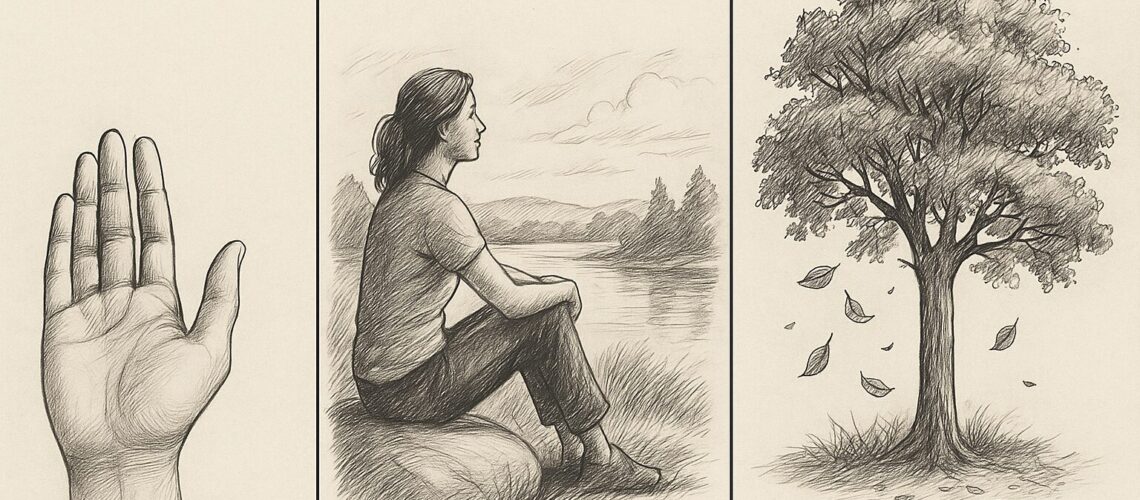A Triad of timeless voices
When modern life frays us, it helps to remember: humans have always struggled to stay sane, always sought ways to renew the spirit. Across centuries, thinkers have left us words that still steady us today.
Here are three such voices — Seneca, Thoreau, and Rumi — each offering a fragment of guidance for keeping our core intact so that we can continue to savor existence.
1. Seneca: “True happiness is… to enjoy the present, without anxious dependence upon the future.”
The Stoic philosopher Seneca lived in a Rome of political intrigue and looming danger. He knew instability firsthand. His counsel was simple: sanity comes from rooting joy in the present moment, not too heavily in just the promises of tomorrow.
How often do we live with anxious dependence? Waiting for the next paycheck, the next vacation, the next success — convinced that only then will we breathe? Seneca’s reminder cuts through: life is not later. Life is now.
Modern echo: Think of someone pausing on their lunch break, stepping outside to feel the sun. Emails wait, obligations press, but for a moment the present is enough. That pause is sanity.
The gift: presence over anxiety.
2. Thoreau: “He enjoys true leisure who has time to improve his soul’s estate.”
Henry David Thoreau, retreating to Walden Pond, sought renewal not in endless busyness but in reflection, contemplation, and simplicity. For Thoreau, leisure wasn’t laziness. It was soul work.
Today, leisure is often confused with escape: bingeing shows, scrolling feeds, filling silence with noise. Thoreau’s words remind us that renewal is active. It comes when we give space for the soul to breathe, to grow, to align with what matters.
Modern echo: A woman leaves her phone at home and walks through a park. She notices the trees, the air, the rhythm of her steps. In that hour, she is not escaping. She is improving her soul’s estate.
The gift: depth over distraction.
3. Rumi: “Be like a tree and let the dead leaves drop.”
The Sufi poet Rumi invites us into an image of release. A tree does not cling to what is spent. It sheds, trusting that spring will bring new growth. In the same way, sanity requires letting go — of grudges, regrets, demands that no longer serve.
We often carry burdens long past their worth. Rumi’s counsel is liberation: drop the dead leaves. Renewal is impossible if our branches are clogged with what no longer belongs.
Modern echo: Someone sits quietly, writing down grievances on scraps of paper. One by one, they burn them or throw them away. The problems aren’t magically solved, but the spirit is lighter. Space is made for renewal.
The gift: release over clinging.
A Thread Through All Three
- Seneca teaches us to enjoy the present.
- Thoreau teaches us to use leisure for the soul.
- Rumi teaches us to let go of what is dead.
Together they form a triad of sanity and renewal — presence, depth, release. None requires wealth or fame. All require only attention and intention.
Closing Thought
We chase complicated answers to stress and despair, but sometimes the oldest words still ring truest. Seneca’s presence, Thoreau’s depth, Rumi’s release — each is a form of soul therapy.
Pause. Root joy in today. Use leisure to improve your inner estate. Let dead leaves drop.
Do these simple things, and you will find that sanity steadies, perspective clears, and the miracle of life shines through once again.
For more like this, visit the broader project at life-savor.com, or explore the Life Savor book itself.
To learn more about Life Savor’s philosophy,
read Life Savor: Treasuring Our Gift of Life by Erik Victor Reed.








